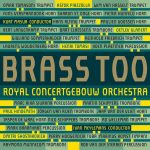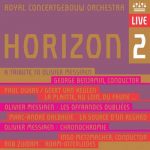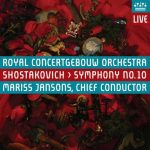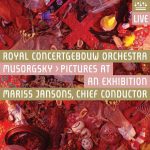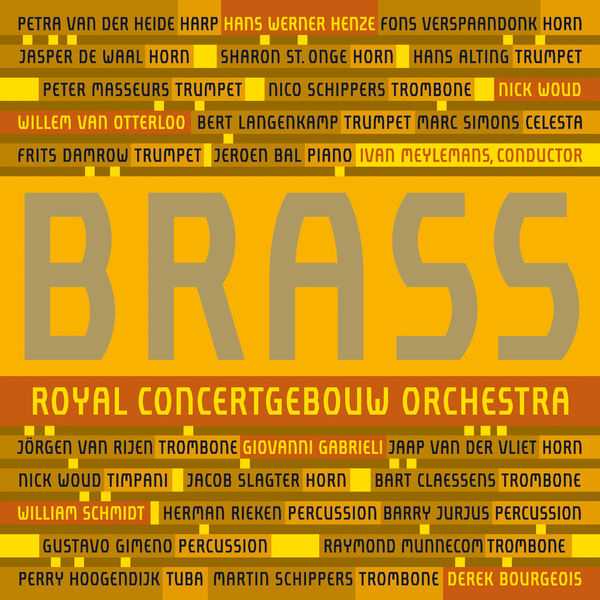

Composer: Derek Bourgeois, Giovanni Gabrieli, Hans Werner Henze, Willem van Otterloo, William Schmidt, Nick Woud
Performer: Brass of the Royal Concertgebouw Orchestra
Conductor: Ivan Meylemans
Format: FLAC (tracks)
Label: RCO Live
Catalogue: RCO07002
Release: 2007
Size: 1.19 GB
Recovery: +3%
Scan: cover
Otterloo: Serenade for Brass and Percussion
01. I. Marsch
02. II. Nocturne
03. III. Scherzo
04. IV. Hymne
05. Woud: The Call
Gabrieli: 3 Sacrae Symphoniaea
06. Sacrae symphoniae (1597): Canzon in echo duodecimi toni a 10
Henze: Ragtimes and Habaneras (version for 10 brass instruments)
07. I. quarter note = 112
08. II. Tempo di Foxtrot
09. III. Tempo di Son
10. IV. Tempo di Tango
11. V. quarter note = 100
12. VI. Tempo di Rumba
13. VII. Ragtime
14. VIII. Tempo di Tango
15. IX. quarter note = 120
16. X. eighth note = 112
17. XI. Allegro vivace
18. Schmidt: Variants with Solo Cadenzas
19. Bourgeois: Concerto Grosso, Op. 61
The members of the brass section of the Royal Concertgebouw Orchestra created their own ensemble in 2003 in order to demonstrate the versatility of brass instruments to a wider public through performances and teaching residencies. These performances, conducted by Ivan Meylemans, display all the virtuosity and brilliance one would expect from the members of one of the world’s premiere orchestras. The repertoire the group has chosen for its first album, an SACD, includes music from the late Renaissance and from the twentieth and twenty-first centuries, the seventeenth, eighteenth, and nineteenth centuries being rather barren periods for brass ensemble music.
The antiphonal Canzon by Giovanni Gabrieli shows off the ensemble’s polish and precision. The modern works vary widely in style and idiom. Willem van Otterloo’s Serenade (1944, revised 1976) is scored for an uncredited mixed ensemble, but the brass are featured prominently in this perky neo-Classical suite. The most fun piece on the CD is Henze’s Ragtimes & Habaneras (1975), in 11 short movements, several of which last less than 20 seconds. This is Henze at his most playful and colloquial; several movements are reminiscent of Weill, in a skewed way, and many sound like they would be fitting accompaniments to circus acts.
The most substantial work is Derek Bourgeois’ 1979 Concerto Grosso, an attractive single-movement piece that exploits a variety of brass sonorities and idioms while maintaining a consistent musical logic. The sound is ideal — spacious without being boomy, and warm but clean.
